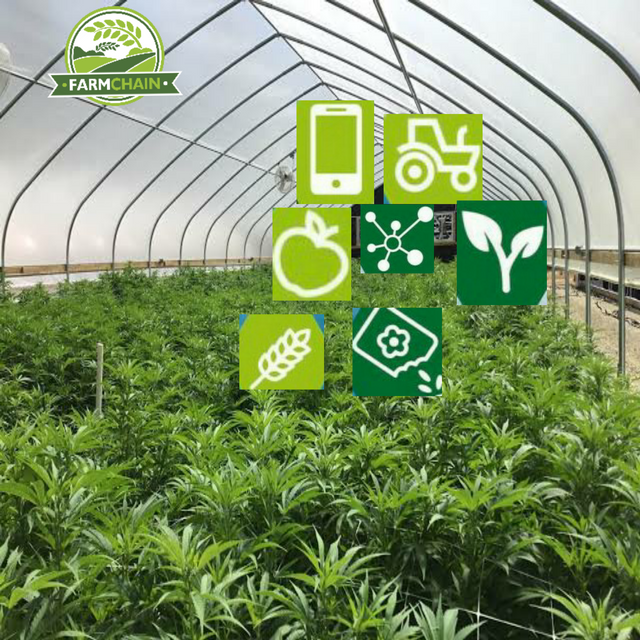
A blockchain is a decentralized, distributed and public digital ledger that is used to record transactions across many computers so that any involved record cannot be altered retroactively, without the alteration of all subsequent blocks.
The underlying processes of the blockchain functionality makes any information stored on the blockchain to be immutable, unlike the conventional internet servers.
There are many use cases of blockchain application in the areas of health, education, government, politics (voting), music etc.
In this article, we will consider blockchain application to agriculture and it's use cases in the agric value chain.
The agric industry is ranked one of the top growing industry with a global market value of $5T, but is face with so many challenges especially as the human population is growing rapidly in recent years. There are several digital technologies that have been invented to solve some of the challenges in the agric value chain, but the blockchain technology offers a whole lot of solutions to the fundamental issues like traceability, supply chain management, farm inventory management, farm management system, fair pricing, community supported agriculture, oversight and payment of agricultural subsidies, Agtech IoT Optimization, Mobile remittance for small farmers, and even Incentivizing sustainable practices.
One use case that this article will tackle at the moment is blockchain traceability.
Let's look at the reason for the need of traceability.
Food Safety
According to reports, about 600 million — which represents about 1 in 10 people in the world — fall ill after eating contaminated food and 420, 000 die yearly, resulting in the loss of 33 million healthy life years (DALYs).
Children under the age of 5 carry 40% of the foodborne disease burden, with 125,000 deaths every year.
Causes Of The Problems
Unsafe farm practices like the application of toxic chemical fertilizers to crops farming and application of chemical drugs to livestocks farming which results to unsafe farm produce that is harmful to health of the consumers.
One other factor is the activities of bad actors within the agric supply chain like corrupt officials of states department for food and drugs administrations, standard organizations and others who directly or directly plays major roles in the agric food supply chain from the farm to the consumers.
The Blockchain Solution
The application of blockchain to transactions and records in both financial and non financial activities means trust and transparency, and that is the reason for food traceability by means of a blockchain mobile dapps with scan coodes that can be pasted on a food product from the farm, and that imformation is stored on the blockchain and verified at each point of the value chain to the final consumers. To ensure the quality of the source, like let's say the source is a farmer who engages in organic farming to ensure food safety, the farmer needs to be certified by a reputable body or institution that his/organic farm practices of the farmers meets the standards best practices of organic farming and be duely certified as such, this steps ensures that the source of the traceable food is authentic and since the information is stored on the blockchain, then it can then be considered reliable due to the immutable nature of informations on the blockchain, unlike the conventional internet servers.
Companies like IBM, Verified Organic, TE-FOOD have build solutions like this either has a side chain or as a dapp. The only challenge about these solutions at the moment is that they are built as permissioned network, which is a bit off the blockchain feature of open source, permission less and transparent.
FarmchainVille is a start up in Nigeria that is not just building a blockchain traceability dapps, but also building real infrastructure, an Agriville for organic farming and training and empowering other rural small holder farmers to engage in organic farming and all these is tokenized using the native utility token in the ecosystem of the agric value chain.